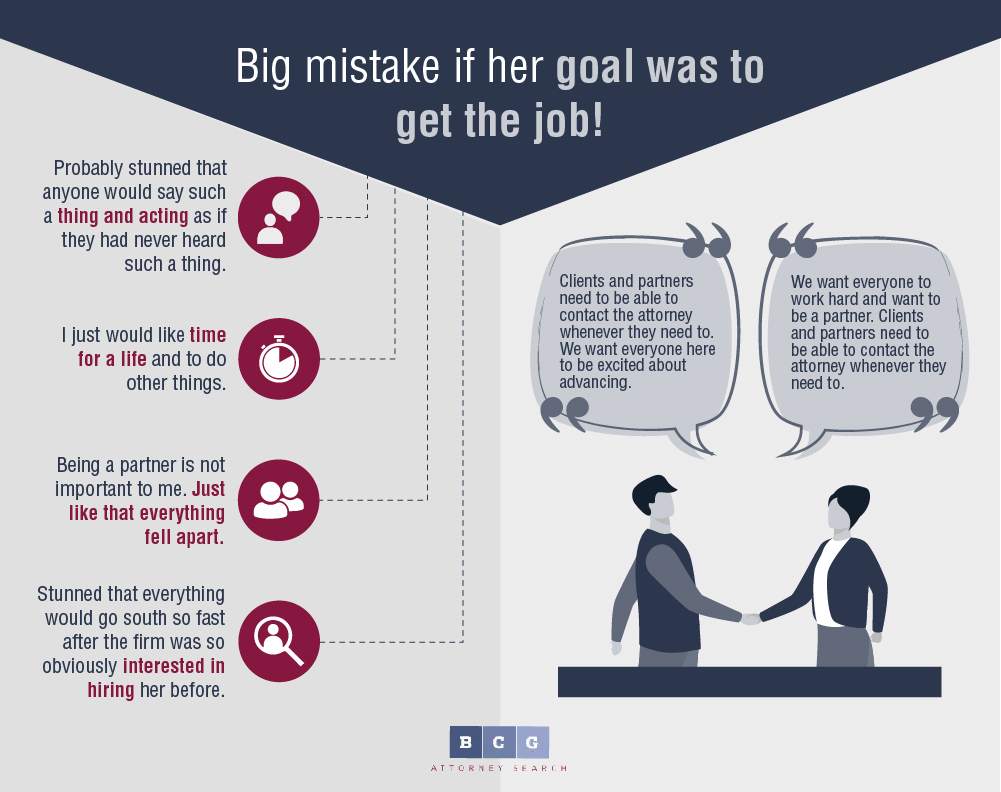
Law firm “diversity” is such a hot topic right now that a good number of law firms place their diversity policy right in the center of their web pages.

|
| Harrison Barnes |
Diversity is the topic of the day right now. Just as several hundred years ago the "big topic" in Spain was acknowledging that you were a Christian and not doing so was met with the threat of torture and death. Today, any hint that you do not support diversity is met with public ridicule, condemnation from law firms, and censure from society as a whole.
The Importance of Diversity
I get it. I really get it. Diversity is incredibly important and not including people because they are diverse is just plain wrong. People should be hired and advanced based on accomplishment and on their contribution to a diverse environment.

How would you feel if your opportunities in society and your chosen profession were limited because of your race, sexual orientation, handicap, religion, background and so forth? You would feel horrible and there would be nothing you could do about it. This is why diversity is so important. People are entitled to be the people they are and want to be-and should be proud of who they are. It is just plain wrong for anyone to be discriminated against and held back because of who that person is. Our research in The Most and Least Diverse Law Firms in the United States provides concrete rankings that illustrate this gap between words and practice.
To cure past wrongs involving societal and institutional prejudice, many elite educational institutions have in the past decades gone out of their way to admit people from diverse backgrounds. These institutions seek to rectify historical imbalance and prejudice in society and it is the right thing to do.
More recently, law firms have joined the movement and jumped in full force on the diversity bandwagon. This is also the right thing to do. But it is very important to understand that underneath the hype, some law firms are not really in the diversity game at all. Some law firms are simply paying lip service to true diversity. A true commitment to diversity would require that these firms actually appreciate and hire people who are truly diverse, but these firms do not do this. I know that they do not do this because I have been in this business for many years and time and time again I have witnessed law firms hire candidates who conformed to law firm norms and failed to hire candidates who did not conform to those norms.
Theory Versus Reality in Law Firm Hiring
When it comes to diversity, there are good intentions on the one hand and business realities on the other hand. As this article explains, what law firms say about diversity and what they do in practice are two completely different things. The reality is that many law firms do not support true diversity and never have-perhaps they never will.
At the outset, please understand that I am not the one making these rules; I am someone trying to get people jobs. I am exposing the reality of the situation so that people will have the correct information they need to get the jobs they want.
This article is not just for people who are diverse and looking to get into a law firm. This article is for everyone who believes that he or she has a right to be unique and different and yet still get a job inside of a major law firm. You can be unique and diverse, of course, and still get a job in a major law firm. But you cannot be too unique or too diverse. You need to fit in, as law firms reward fitting in. If you do not fit in to a law firm, the law firm will not hire you.
In fact, I have encountered all of these (exact) people in the course of my work over the past few years. They all came to me after months or years of job searching. Despite their diversity and excellent qualifications, they all got fewer interviews and fewer job offers than non-diverse candidates with similar (or not as good) qualifications. After a career seeing this pattern over and over again, I can only conclude that law firms really do not appreciate diversity that much. (Or, even if firms do appreciate diversity, they do not appreciate diversity so much that it motivates them to deviate substantially from risk-averse behavior that compels them to hire non-diverse candidates over diverse candidates).
One recent example comes to mind of a young partner in a major American city who is gay. He has $2,000,000 in business, which is enough to get a position in most law firms after less than ten years of practice. He has good educational qualifications from top schools but has never been able to get a position in a major law firm. There is nothing whatsoever to indicate he is gay on his resume; however, when law firms meet him they quickly pick up on it.
"How did you like him?" I asked one law firm partner who was part of a law firm that had sent me one of those diversity policies.
"Honestly," the partner said, "I felt like he was so light on his toes he was going to 'fly around the room.'" I could not believe it! Yes, this is how people STILL act in this day and age (this particular firm was in the South).
Another law firm told me they liked him but "got a strange 'vibe'" from him. The partner was obviously gay, came across as gay, and people picked up on it immediately.
He got a ton of interviews-why would he not? But firm after firm met him and passed after doing so and most simply said nothing about why they were passing. When it came down to making an offer or not, law firms would not pull the trigger and my belief was that it was because his "diversity" made them uncomfortable.
When he did not get job offers after numerous interviews, he told me he wanted to promote his "diversity" on his resume. So we put a bunch of diverse stuff on his resume and his leadership participation in "Gay Mens' Health Crisis" organizations and so forth. I wrote enthusiastically about his interest in Gay groups to firms and highlighted his interest in Gay groups and when I did that the interviews simply stopped.
I thought a lot about this situation and how to help this candidate get hired. I came to believe that he would have been hired by many of the firms with which he had interviewed if he had been more discrete about his gayness. If he had played it down and did not show how gay he was I think he would have been hired.
So I did the unthinkable. He had one more interview coming up and I asked him something along the lines of the following when he indicated he felt law firms were discriminating against him because he was gay:
“If you were to not act gay, what do you think would happen?”
He did that and what do you think happened? He got an offer—from a top firm. He would have taken the offer, but there was ultimately a conflict that prevented it. He is still at his current firm.
I have example after example of this. Years ago, I was working with two women who were both from the same law firm. They had gone to the same law school and had similar grades. They were both in the same practice area and looking for a position in the "bastion" of liberalism: San Francisco. One was white and the other was black. The black woman had a bunch of stuff on her resume about how she had been a national leader of the Black Law Students Association and was proud to have sued her law school with other black students seeking some sort of diversity. I thought she was a great candidate.
She did not get a single interview and the white woman got several interviews and job offers.
What is going on here? Deep down, I really do believe that law firms want to do the right thing-to be diverse and to hire diverse candidates such as African Americans and others. But at the same time, law firms are risk averse and seek to avoid problems. This means that when push comes to shove, they feel threatened by people who act too diverse and they prefer to hire non-diverse people whom they feel will more readily adhere to the norms of life (and work, work, work) that define the modern law firm.
Law Firms Eschew Diversity Because They Fear It Might Lead to Destabilizing Problems and Lack of Control
Why do law firms keep hiring non-diverse people over diverse people, despite their diversity policies and best intentions? One reason is that many law firms have been "burned" in their diversity efforts when they hired diverse people who turned around and accused them of not being diverse enough, or tolerant enough, or who simply looked for problems regarding diversity. Law firms need to maintain low profiles and avoid people who seem "too diverse."
In addition to being fearful that they will hire someone who will end up making problems, law firms also are worried that they might end up hiring someone who is too independent-minded and cannot be controlled in the way that law firms are used to controlling their workers.
The "working mother" is a perfect case in point. Because law firm salaries are so high in major law firms, it has become increasingly common for many women to work and husbands to stay at home. Despite this arrangement, most women still want a day off per week, or some flexibility to work at home. In addition, working mothers often want flexibility and the ability to have flexible work schedules that allows them reduced hours, flexibility to take children to school and the doctor, and other accommodations
Seems reasonable, right? After all, a diverse work environment has all types. Working mothers, single fathers raising children and so forth.
While these arrangements are something that most law firms will certainly tolerate for people already employed with them, their feelings towards such arrangements become crystal clear once the working mother tries to find a new job offering such flexibility. In general, it does not matter if she was at the top of her class at Harvard Law School or coming from a top firm. Law firms have little interest for flexible working arrangements when hiring laterally. The same rules apply: Similarly situated people (one who is a working mother, the other who is not) will experience profoundly different treatment and one will get interviews and get hired and the other will not.
This happens all the time. It has always happened and will always continue happening. People who advertise and make an issue out of how they are different, diverse, or need some sort of special treatment will not be hired and those who fit the mold will be hired.
But here is the good news for anyone who is more interested in getting a job at a law firm than in making a social statement about diversity or in feeling entitled to special treatment-law firms will hire diverse people as long as they do not make any issues out of being diverse.
Law firms are thus fine hiring a mother, but not if she expects to be treated differently. Law firms actually want to hire African Americans and other minorities, as long as they do not make an issue out of their diversity. Diversity is sought and valued, but not when it is in your face.
Over a decade of enthusiastically representing attorneys of all sorts of diversity-and steadfastly believing in and wanting diversity-has led me to become a devil's advocate. So take it from the law firm's perspective. Law firms are businesses and they are driven by the needs and wants of their clients. This means that to get a job in a law firm you need to be the sort of attorney and person that a law firm client wants as well. That is a fact. And what type of person is that? It is someone who will put his or her head down, do what he or she is told, and get the work done.
So how does the woman who wants to work a reduced-hour schedule or take time off to raise her kids fit into this reality? Not so well-and not because there is anything inherently wrong with raising kids-but because it does not fit the model of a client and economics-driven law firm that demands loyalty to the firm above all else.
Here is another story to help illustrate this point. Not too long ago I was representing an attorney who had some of the most amazing qualifications imaginable. This attorney not only graduated from a top law school, but she did very well there. She was a minority and had qualifications that easily exceeded those of just about every top firm she was considering. She interviewed at one particular firm and the firm loved her and was exceedingly thankful to me for finding her. The firm was prepared to make an offer to her, but then she told the firm she did not want to be a partner. To explore real-world approaches to inclusive hiring, see Effective Strategies for Recruiting and Retaining Minority Attorneys.
Big mistake if her goal was to get the job!
“Why?” the firm asked her—probably stunned that anyone would say such a thing and acting as if they had never heard such a thing.
“I just would like time for a life and to do other things. Being a partner is not important to me.”
Just like that everything fell apart. The law firm called me and said they were no longer interested in her.
“Why?” I asked the firm—stunned that everything would go south so fast after the firm was so obviously interested in hiring her before.
"Because if we have a single person here that does not want to make partner then it destroys our culture. We want everyone to work hard and want to be a partner. We need control over them so they work hard. We want everyone here to be hungry and excited about advancing. We need to be able to give people work on the weekend and when it is needed. Clients and partners need to be able to contact the attorney whenever they need to. Why would we hire your candidate when we have countless people here that do not come with that 'baggage'?"
The firm droned on and on and I got it. They wanted control and they wanted people to be constantly motivated and committed. They did not want any “baggage.”
Back to a working mother wanting reduced hours. This is the same sort of thing. A law firm cannot control her. They cannot call her whenever they want to. The attorney will not be as motivated. Instead, the firm will simply hire someone without that "baggage" because then the law firm will be confident it will not need to deal with control issues.
It does not matter what city the attorney is in. It could be San Francisco, Los Angeles, New York, or Charleston. Law firms will only accept and embrace diversity as long as it does not come with "baggage." Baggage is anything that makes you too different and not part of the "mold" that law firms require.
One of the biggest misperceptions of attorneys is that they are in control of their careers. They want to believe that they can practice law on their own terms and also be the person they are most comfortable being-whether it is advertising a nonmainstream religion, sexual preference, or work preference. They believe, mistakenly, that law firms really do appreciate diversity.
In my career as a legal recruiter, I have come to believe that the exact opposite is true. While it is completely unspoken, I believe law firms expect a high degree of conformity. They do not want their employees to be "too different," as that brings baggage and opens the door to problems involving control. Law firms want to hire people with whom they feel comfortable and this means that, despite policies to the contrary, they really do not support the sort of diversity that they say they do.
- While skepticism exists, Lewis Brisbois Bisgaard & Smith LLP’s thriving commitment to diversity shows that some firms truly ‘walk the walk.
Conclusions
Diversity is a great policy for law firms. All law firms should be diverse. But the truth is that law firms do not really embrace people who are diverse, as what law firms are actually looking for is conformity and lack of "baggage."
You can get into a good law firm being "diverse" and, in my opinion, it may actually help you a great deal. I place a great number of diverse candidates and it is the part of my practice of which I am most proud because I do believe that our society and its institutions should be more diverse. Those that I place, however, are the ones who tone down what makes them different and do not make an issue out of their diversity. This should not be the case, of course, and is a sign that law firms are behind the ball and not as diverse as they should in fact be.
About Harrison Barnes
No legal recruiter in the United States has placed more attorneys at top law firms across every practice area than Harrison Barnes. His unmatched expertise, industry connections, and proven placement strategies have made him the most influential legal career advisor for attorneys seeking success in Big Law, elite boutiques, mid-sized firms, small firms, firms in the largest and smallest markets, and in over 350 separate practice areas.
A Reach Unlike Any Other Legal Recruiter
Most legal recruiters focus only on placing attorneys in large markets or specific practice areas, but Harrison places attorneys at all levels, in all practice areas, and in all locations-from the most prestigious firms in New York, Los Angeles, and Washington, D.C., to small and mid-sized firms in rural markets. Every week, he successfully places attorneys not only in high-demand practice areas like corporate and litigation but also in niche and less commonly recruited areas such as:
- Immigration Law
- Workers Compensation
- Insurance
- Family Law
- Trust and Estate
- Municipal law
- And many more...
This breadth of placements is unheard of in the legal recruiting industry and is a testament to his extraordinary ability to connect attorneys with the right firms, regardless of market size or practice area.
Proven Success at All Levels
With over 25 years of experience, Harrison has successfully placed attorneys at over 1,000 law firms, including:
- Top Am Law 100 firms such including Sullivan and Cromwell, and almost every AmLaw 100 and AmLaw 200 law firm.
- Elite boutique firms with specialized practices
- Mid-sized firms looking to expand their practice areas
- Growing firms in small and rural markets
He has also placed hundreds of law firm partners and has worked on firm and practice area mergers, helping law firms strategically grow their teams.
Unmatched Commitment to Attorney Success - The Story of BCG Attorney Search
Harrison Barnes is not just the most effective legal recruiter in the country, he is also the founder of BCG Attorney Search, a recruiting powerhouse that has helped thousands of attorneys transform their careers. His vision for BCG goes beyond just job placement; it is built on a mission to provide attorneys with opportunities they would never have access to otherwise. Unlike traditional recruiting firms, BCG Attorney Search operates as a career partner, not just a placement service. The firm's unparalleled resources, including a team of over 150 employees, enable it to offer customized job searches, direct outreach to firms, and market intelligence that no other legal recruiting service provides. Attorneys working with Harrison and BCG gain access to hidden opportunities, real-time insights on firm hiring trends, and guidance from a team that truly understands the legal market. You can read more about how BCG Attorney Search revolutionizes legal recruiting here: The Story of BCG Attorney Search and What We Do for You.
The Most Trusted Career Advisor for Attorneys
Harrison's legal career insights are the most widely followed in the profession.
- His articles on BCG Search alone are read by over 150,000 attorneys per month, making his guidance the most sought-after in the legal field. Read his latest insights here.
- He has conducted hundreds of hours of career development webinars, available here: Harrison Barnes Webinar Replays.
- His placement success is unmatched-see examples here: Harrison Barnes' Attorney Placements.
- He has created numerous comprehensive career development courses, including BigLaw Breakthrough, designed to help attorneys land positions at elite law firms.
Submit Your Resume to Work with Harrison Barnes
If you are serious about advancing your legal career and want access to the most sought-after law firm opportunities, Harrison Barnes is the most powerful recruiter to have on your side.
Submit your resume today to start working with him: Submit Resume Here
With an unmatched track record of success, a vast team of over 150 dedicated employees, and a reach into every market and practice area, Harrison Barnes is the recruiter who makes career transformations happen and has the talent and resources behind him to make this happen.
A Relentless Commitment to Attorney Success
Unlike most recruiters who work with only a narrow subset of attorneys, Harrison Barnes works with lawyers at all stages of their careers, from junior associates to senior partners, in every practice area imaginable. His placements are not limited to only those with "elite" credentials-he has helped thousands of attorneys, including those who thought it was impossible to move firms, find their next great opportunity.
Harrison's work is backed by a team of over 150 professionals who work around the clock to uncover hidden job opportunities at law firms across the country. His team:
- Finds and creates job openings that aren't publicly listed, giving attorneys access to exclusive opportunities.
- Works closely with candidates to ensure their resumes and applications stand out.
- Provides ongoing guidance and career coaching to help attorneys navigate interviews, negotiations, and transitions successfully.
This level of dedicated support is unmatched in the legal recruiting industry.
A Legal Recruiter Who Changes Lives
Harrison believes that every attorney-no matter their background, law school, or previous experience-has the potential to find success in the right law firm environment. Many attorneys come to him feeling stuck in their careers, underpaid, or unsure of their next steps. Through his unique ability to identify the right opportunities, he helps attorneys transform their careers in ways they never thought possible.
He has worked with:
- Attorneys making below-market salaries who went on to double or triple their earnings at new firms.
- Senior attorneys who believed they were "too experienced" to make a move and found better roles with firms eager for their expertise.
- Attorneys in small or remote markets who assumed they had no options-only to be placed at strong firms they never knew existed.
- Partners looking for a better platform or more autonomy who successfully transitioned to firms where they could grow their practice.
For attorneys who think their options are limited, Harrison Barnes has proven time and time again that opportunities exist-often in places they never expected.
Submit Your Resume Today - Start Your Career Transformation
If you want to explore new career opportunities, Harrison Barnes and BCG Attorney Search are your best resources. Whether you are looking for a BigLaw position, a boutique firm, or a move to a better work environment, Harrison's expertise will help you take control of your future.
Submit Your Resume Here to get started with Harrison Barnes today.
Harrison's reach, experience, and proven results make him the best legal recruiter in the industry. Don't settle for an average recruiter-work with the one who has changed the careers of thousands of attorneys and can do the same for you.
About BCG Attorney Search
BCG Attorney Search matches attorneys and law firms with unparalleled expertise and drive, while achieving results. Known globally for its success in locating and placing attorneys in law firms of all sizes, BCG Attorney Search has placed thousands of attorneys in law firms in thousands of different law firms around the country. Unlike other legal placement firms, BCG Attorney Search brings massive resources of over 150 employees to its placement efforts locating positions and opportunities its competitors simply cannot. Every legal recruiter at BCG Attorney Search is a former successful attorney who attended a top law school, worked in top law firms and brought massive drive and commitment to their work. BCG Attorney Search legal recruiters take your legal career seriously and understand attorneys. For more information, please visit www.BCGSearch.com.
Harrison Barnes does a weekly free webinar with live Q&A for attorneys and law students each Wednesday at 10:00 am PST. You can attend anonymously and ask questions about your career, this article, or any other legal career-related topics. You can sign up for the weekly webinar here: Register on Zoom
Harrison also does a weekly free webinar with live Q&A for law firms, companies, and others who hire attorneys each Wednesday at 10:00 am PST. You can sign up for the weekly webinar here: Register on Zoom
You can browse a list of past webinars here: Webinar Replays
You can also listen to Harrison Barnes Podcasts here: Attorney Career Advice Podcasts
You can also read Harrison Barnes' articles and books here: Harrison's Perspectives
Harrison Barnes is the legal profession's mentor and may be the only person in your legal career who will tell you why you are not reaching your full potential and what you really need to do to grow as an attorney--regardless of how much it hurts. If you prefer truth to stagnation, growth to comfort, and actionable ideas instead of fluffy concepts, you and Harrison will get along just fine. If, however, you want to stay where you are, talk about your past successes, and feel comfortable, Harrison is not for you.
Truly great mentors are like parents, doctors, therapists, spiritual figures, and others because in order to help you they need to expose you to pain and expose your weaknesses. But suppose you act on the advice and pain created by a mentor. In that case, you will become better: a better attorney, better employees, a better boss, know where you are going, and appreciate where you have been--you will hopefully also become a happier and better person. As you learn from Harrison, he hopes he will become your mentor.
To read more career and life advice articles visit Harrison's personal blog.





